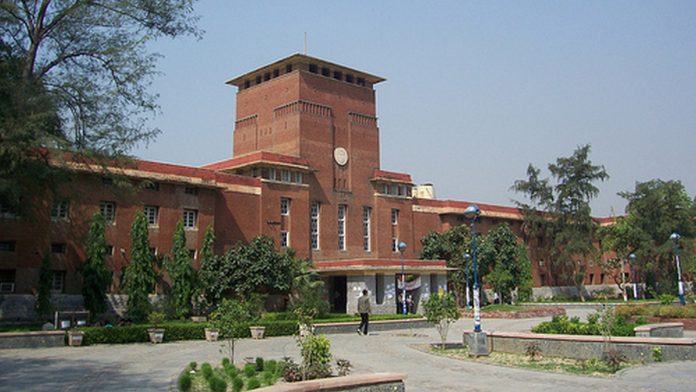On Tuesday, the meeting of Executive Council approved the implementation of the NEP. Along with National Education Policy, the four-year UG program was also accepted.
Instead of three years, DU will offer four years of the UG program. Moreover, the highest decision-making body of DU has also approved MEES. According to MEES, students can enter and exit in the middle of their academic year. The Academic bank of Credit will allow students to earn credits from outside of their universities.
Besides the implementation of the NEP, the EC has discontinued the M.Phil programs. However, students will be able to choose from one or two-year courses in masters.
“The execution of the National Education Policy (NEP) will come into effect from 2022,” said Registrar Vikas Gupta.
Table of Contents
CONFLICTS ON IMPLEMENTATION OF NEP
Before this, on 29 July 2019, Union Cabinet had cleared the NEP 2020. Subsequently, on 24 August this year, the Academic Council approved NEP. But, the DU vice-chancellor’s office faced several protests.
Similarly, three EC members have disagreed with this decision. “Three EC members disagreed with the approval of the issue. We wanted the university to delay the changes. The new system was not even discussed in Parliament, only approved by the central cabinet. We wanted all stakeholders to discuss the matter before approving it,” said Rajpal Singh Panwer.
WHEN WILL THE ADMISSION PROCESS START FOR SOL?
DUTA held the “Anti-academic recommendations of NEP 2020” online protest. Moreover, DUTA says, “MEES will only increase the attrition rate, giving a pseudo sense of a degree. This is an extremely ill-prepared structure. If implemented can end up worsening the career progression of generations of students to come.”
#REOPENDU: STUDENTS ARE TIRED OF WAITING AND WANT PHYSICAL CLASSES
“It is inappropriate if any new execution leads to less employment. Students and teachers have suffered hastened implementation of one ‘reform’ after another for ten years.,” the DUTA added.













